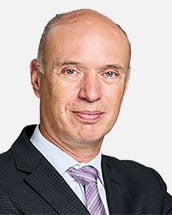On 4 May 2023, Royal Excelsior Virton (“Virton“), a professional football club in Belgium’s second division, announced that it lodged a complaint against competing club SK Lommel (“Lommel“) with the European Commission (“Commission“) under the new Regulation 2022/2560 on foreign subsidies distorting the internal market (“FSR“). This appears to be the first time the Commission is publicly asked to initiate an ex officio investigation under the FSR.
In a statement, Virton said that it had lodged the complaint to challenge the “financial doping” of football clubs in the EU that benefit from financial support from countries such as Qatar, Saudi Arabia, and the United Arab Emirates. According to Virton, this financial support, which it said takes the form of “artificially inflated sponsorship agreements but also – more directly – through capital injections,” distorts competition in the EU football market.
Virton’s complaint appears primarily targeted at its competitor Lommel, which is part of the City Football Group “and therefore receives funds from the Emirate of Abu Dhabi.” According to Virton, Lommel received a new capital injection of EUR 16.8 million (over three times Virton’s budget) from its parent company, which allowed it to obtain its professional licence from the Belgian football federation for the 2023-2024 season. Virton claims that this capital injection is not underpinned by economic rationale and therefore distorts competition.
For that reason, Virton filed a complaint with the Commission, requesting that the Commission “use its new powers [under the FSR] to put an end to the distortions caused by these foreign subsidies distorting the professional football market in the EU and in particular in Belgium.”
The Commission will be able to initiate ex officio investigations into foreign subsidies that distort the EU internal market as from 12 July 2023 onwards. An investigation can cover subsidies granted as far back as 2018.
It is not yet clear whether the Commission will indeed do so following Virton’s complaint. The FSR does not contain a formal complaints process (unlike in anti-subsidy/countervailing duty cases) and there is no obligation on the Commission to act upon a complaint.
If the Commission decides to initiate an ex officio investigation following Virton’s complaint, the first step would be a preliminary review. In that review, the Commission could request “all necessary” information from Lommel, its parent company, the Emirate of Abu Dhabi, and any other company, association, EU Member State and non-EU government that is deemed relevant to the review. The Commission can also request to verify the provided information on the spot (as in anti-subsidy/countervailing duty investigations). If, following the preliminary review, the Commission finds sufficient indications that Lommel has been granted a foreign subsidy that distorts the EU football market, the second step would be an in-depth investigation.
To assess whether any financial support that Lommel may have received from the Emirate of Abu Dhabi is an actionable foreign subsidy that distorts the EU football market, the Commission would take account of several factors, including: (1) the amount and nature of the subsidy, (2) the situation of Lommel (and its parent company), such as its size and position in the football sector, (3) the level and evolution of economic activity of Lommel (and its parent company) on the EU market, (4) the purpose and any conditions attached to, and the use of, the financial contributions on the EU market.
If the Commission concludes that Lommel has benefited from a foreign subsidy that distorts the EU football market, it can impose redressive measures to remedy that distortion. These remedies could include ordering Lommel to (1) refrain from making certain investments, (2) divest certain assets, and/or (3) repay the subsidy. Virton’s complaint under the FSR illustrates the broad scope for ex officio investigations under the FSR, including as another tool for EU companies to address perceived unlevel playing fields.







